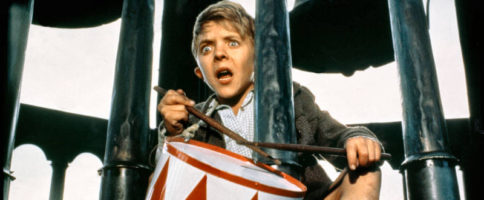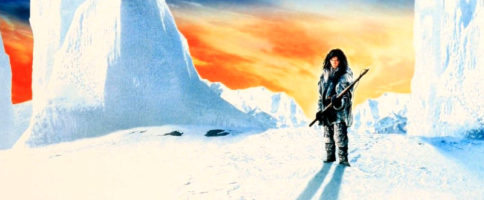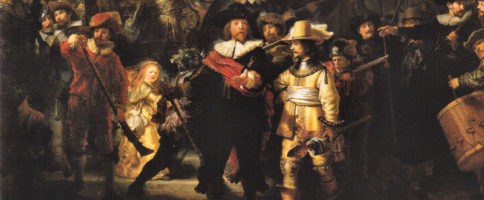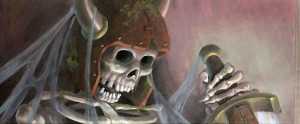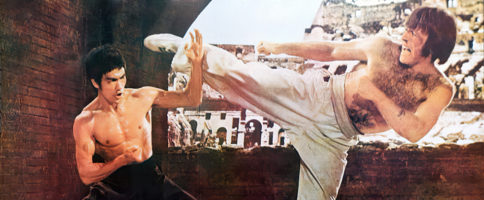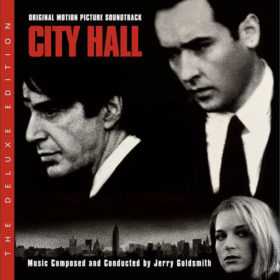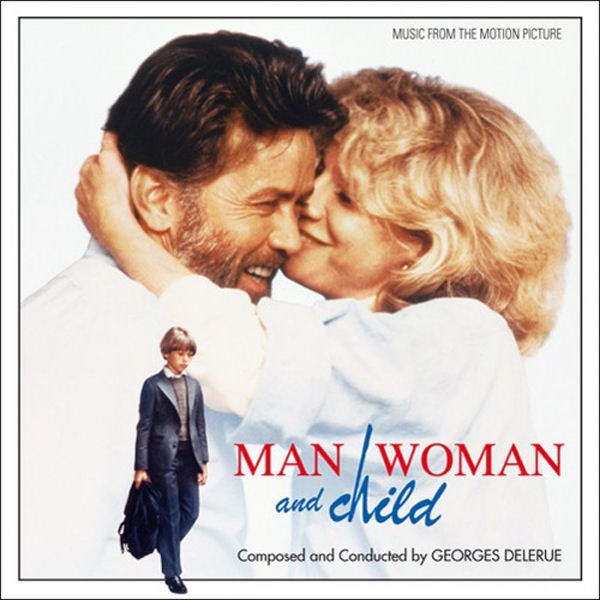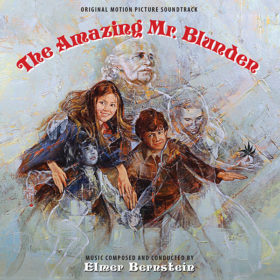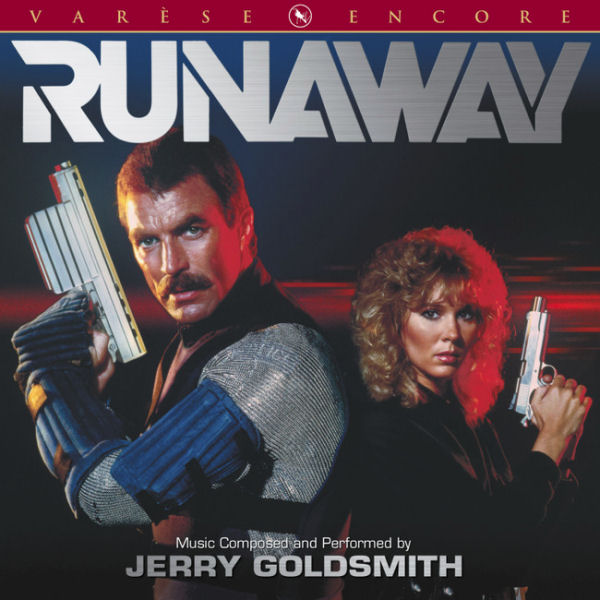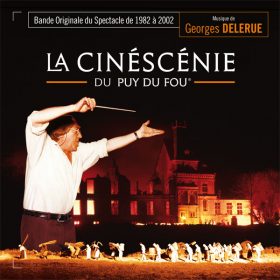What is your first musical memory?
My first musical memory? Now there’s a question… I’ve got to think back a long time… Oh my goodness! Well, certainly in the context of film music, orchestral music, I remember really becoming aware and introduced to the sound of a symphonic orchestra through the scores that John Williams and Jerry Goldsmith were writing in the mid to late 1970’s, like Superman, Star Trek, Alien and of course Star Wars. And that, in terms of the world that I work in now, was the beginning. It was also around that time that I discovered classical music as well: Dvorak was an early favorite. So, when you’re at that age, 11, 12, 13, it’s like everything is a discovery, the whole world is a discovery… But that’s where the path that I’ve followed through with began.
Which was the first film music that had a durable impact on you?
Certainly Star Wars! For many of us growing up at that time, kids going to an exciting movie like Star Wars, it was like to be blown against the back of the theatre with the power of that Main Title, and this explosion of wonderful sound! Looking back at the moment of that orchestral explosion of the Main Title of Star Wars, it’s such a gift that John Williams gave to the world, because it really became the door that so many people entered film music through. That was certainly my case, but at the same time there’s always more than the door, that kind of did lay out the red carpet, so to speak, but it was others scores, John Williams’ score for Superman, and Jerry Goldsmith, very much, with Star Trek and Alien, that truly pulled me in and gave me even more to grasp and love. And all of a sudden, I realized that it’s not just loving Star Wars. I started acquainting myself with other scores and realizing that Superman is by the same guy that wrote Star Wars and Alien is by the same guy that wrote Star Trek, and then, exploring further and deeper the music of John and Jerry and, one at a time, adding composers to the group of composers that were affecting me: Alex North, Elmer Bernstein and Georges Delerue… And then the eyes get wider and wider…
Which film music composer do you admire the most?
I have to say Jerry Goldsmith. I was so lucky to have Jerry become such a dear friend and work with him from my very first album, which was The Final Conflict, through to what was his very last score, Looney Tunes Back In Action. We did 80 albums together over the years, but aside from all the work we did together, I admire him for personal reasons. His life and career was such an inspiration. He produced such an extraordinary body of work that he gave to the world and he worked so hard on the music he wrote to make sure that everything was at an extraordinarily high level. There was such a genuine inspiration with him: he worked hard, but there are certainly composers that can work very hard and not achieve in a lifetime’s effort what he could do in five minutes! Because of that gift that we can’t ever put our finger on: where does that come from? He had the gift, and he had a work ethic that allowed him to create not just a few scores but, whether it was a great film, or a not so great film, or a terrible film, it was always a Jerry Goldsmith score, and that meant great, truly great, historic film music. And he was always so good to all of the people who worked with him. He was certainly demanding but he was very loyal and his team was very much like a family.
Which part of the job do you enjoy the most?
I think the part of my job that I enjoy the most is the variety of the jobs involved, because I love working with composers on new scores for films: you have this extraordinary creativity, and I love to see a new score take shape and to be able to be part of that process. But I also loved, over the years, working with Jerry Goldsmith, Elmer Bernstein or other composers and conductors like Joel McNeely and John Debney, when we would go off to Scotland and do a brand new recording of a classic score. It’s a completely different process, but it’s something that is so important to me and something that I cherish so much. I also love being involved in music festivals, like Ubeda of course, and Tenerife, and Ghent, and concerts around the world that aren’t related to music festivals, like the ones I did with the Royal Scottish National Orchestra, with Jerry Goldsmith conducting a number of concerts, and we celebrated his 70th birthday on this occasion. Also with Joel McNeely, we did a lot of Bernard Herrmann concerts in Chicago, in Lyon and in London. I love commissioning artwork for album covers, so the Varèse offices looks more like an art gallery than a record company because I have huge Matthew and Bob Peak paintings on every wall, like I do at home. It’s all these different things that I take so much excitement from, because when I do something, it’s from the beginning of a project to the end. I work with the lawyers at the studio and construct the deal that allows the project to happen in the first place, right through the package design and the release of the album. Since I have so many different albums going at the same time, they are all in different stages in the production process. So every day I’m working, I spend different points along the spectrum of the project production over the course of all the different projects I’m working on. So the variety is extreme and enormous, and that’s why I enjoy it so much and find it most rewarding.
What do you think of the state of film music today?
I think film music faces struggles, it always has. The hope is always that real creativity will endure, that new talents will emerge and come to film music. It’s wrong to feel that all the challenges that film music faces today are new because film composers have been dealing with so many issues from the very beginning. I was talking yesterday with Colette Delerue and telling her that even on the Franz Waxman score for Rebecca, which Joel McNeely and I recorded with The Royal Scottish National Orchestra years ago, there were cues of the Waxman score that were dropped and replaced with the temp track from earlier Max Steiner movies or earlier scores by Franz Waxman from the late 1930’s. So even in the 1940’s, a composer like Waxman was losing cues of his score because of the temp track that was in the film. So it’s always been this way and hopefully the composers come up with ways to face that challenge and still create great music.
Do you intend to continue your involvement as a musical director for Ubeda and Tenerife festivals?
Yes I hope so. I enjoy it very much, but it is or certainly can be a little overwhelming. It’s a lot of work on each one of these events. If I was working on any one of them, it would be a lot of work in addition to all the work I do on all of my albums, so then to have two of them and then three of them I mean, two of them back to back and one of them that follows in close proximity… I’ve been involved for three years with the Tenerife festival, and of course it is my fourth year in Ubeda, and I’m on the board of directors for the festival in Ghent. When I was facing this year, as it was looming, when I could see it, I was a little worried about how over committed I am for the year. And looking back now, I was right. I’ve been spread a little thin this year, it’s been a little difficult because there also have been so many albums! Last month, just in June, I had eleven new albums. And that’s actually not healthy! Again, it’s an example of how none of those albums couldn’t have not been done. All were very important, important for the composers, important to me and that was also in a period of time immediately prior to these festivals occurring and during all the records I was doing, I was on preparing for Ubeda, preparing for Tenerife. But one way or another I’ll get through it.
What can we expect from Varèse Sarabande in the future?
So much exciting music! I think the coming months at Varèse Sarabande are going to be some of the more exciting that we’ve ever seen. Truly! I’m so excited about it. When I finish my time in Spain this summer, I will return to Los Angeles and will be working on my one thousandth album and it’s going to be cause for celebration, it’s a great event and I want to look at it as a real celebration all the composers and all the musicians who have been part of the body of work that I’ve been able to compile amongst those thousand albums. So it’s not so much a celebration of what I’ve done, but it’s a celebration of what all the people who have been part of that have done and that I’m so excited about, because it’s an extraordinary group of composers and musicians. When you look back and say that the 1000 albums that we are celebrating include Alex North, Henry Mancini, Miklos Rozsa, Georges Delerue, Jerry Goldsmith and Elmer Bernstein, all the legends and great musicians, and writers like Michael Crichton, Stephen King, and people like that who have written liner notes for these albums, and artists Matthew Peak and Bob Peak who have done paintings for these albums, and John Alvin and so many great artists, Drew Struzan… I’m just so proud to bring all of those people together and to have them represented amongst my one thousand album discography and so it’s certainly an occasion that I’d like to be a genuine film music celebration. And leading up to that, I’ve got other special releases planned as well. It’s going to be a really exciting time.
What is the best memory from your career?
My happiest memories are, in so many ways, so many of my dear friends I’ve lost over the years. There is not a single memory in that regard, but it’s the variety of them. I remember being in Ubeda with Basil Poledouris. I remember my visits to Georges Delerue at his home when we were working on albums and he was always encouraging me to come over and be with him and work in person, not over the telephone. Things like that… So many happy memories with Jerry Goldsmith. I remember my very first album being released and looking at that being in awe, I couldn’t believe that I had produced my own soundtrack album. And I still look at each new album almost in the same way because it doesn’t matter that I have done more than nine hundred of them, the point is that if I’m doing a new album, I’m doing that one for the first time and so that’s just as exciting. I remember being in Scotland having breakfast with Elmer Bernstein just before we go to the recording studio to record To Kill A Mockingbird, it’s such an extraordinary moment to know that just after breakfast, you are recording To Kill A Mockingbird with Elmer Bernstein (laughs). Visiting Alex North and just being downstairs in his studio talking about music and talking about Spartacus, Cleopatra, A Streetcar Named Desire, talking about other composers… To be with Alex North and talking about Malher, to be with Jerry Goldsmith and having him kind of kidding me because I love Sibelius, kidding me about that because he was not a great Sibelius fan but he loved Puccini and Malher and he would call and ask me: « What are you listening to? » and we would talk about that… So things abstract and separate from the work we did, but you know, all of us, the master composers, like Alex and Jerry, they were music fans too, they loved music, there were composers who were their heroes and so it was nice just to be part of that, to see music through their eyes, and discussing it in that way. I was so happy to get to work with Bob Peak, the great artist who worked on so many incredible movie posters over the years. And his son too, when Matthew took over the 2001 project because his father passed away and stepped into those shoes, and to see Matthew rise and do such an extraordinary painting which he did for the cover of that album. I’m so lucky to have a life and career just full of so many wonderful memories that continue. I’m cherishing so much being here in Ubeda with Colette Delerue for a tribute to Georges and I’m looking for the hearing of Agnes Of God and the pieces of Georges that are in the recital. It’s just the continuing celebration of film music which I am so privileged to be part of and I hope it will just go on forever.
Interview conducted on July 17, 2009 by Olivier Desbrosses, Florent Groult & Stéphanie Personne.
Transcription : Laurent Lafarge.
Pictures : © Olivier Desbrosses | UnderScores.









